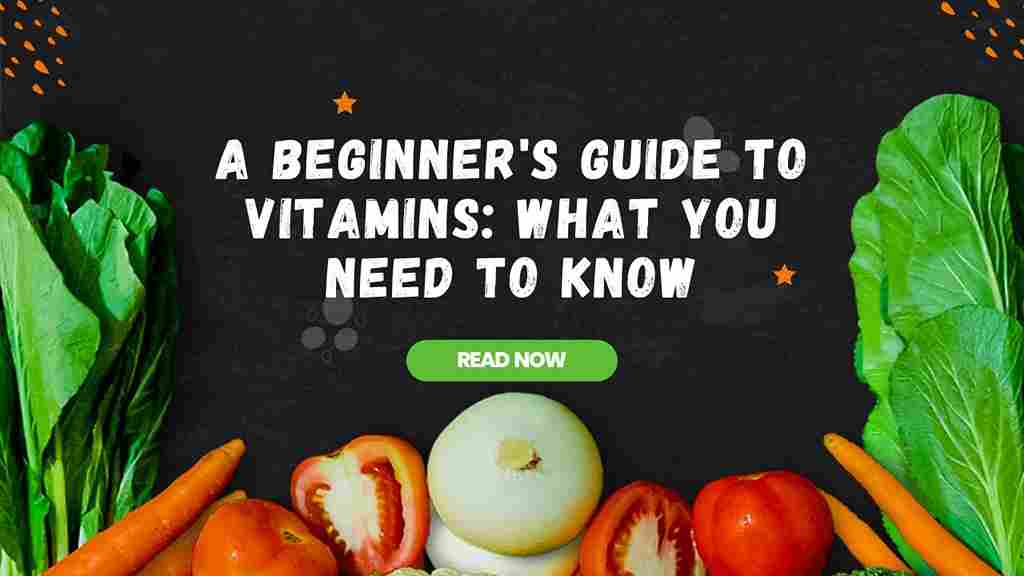In the ever-evolving realm of health and wellness, one topic that consistently takes center stage is the importance of vitamins. These tiny but mighty compounds play a pivotal role in maintaining our overall well-being. This comprehensive guide will provide you with an in-depth understanding of essential vitamins, their vital functions within the body, and where to find them in your daily diet.
Vitamin A: The Vision Vitamin
Function: Vitamin A is essential for maintaining healthy vision. It plays a crucial role in the formation of rhodopsin, a protein in the eyes that enables you to see in low-light conditions. Moreover, it supports the health of your skin, teeth, and soft tissues.
Dietary Sources: You can obtain vitamin A from both animal and plant sources. Animal sources provide preformed vitamin A (retinoids), found in liver, eggs, and dairy products. Plant sources offer provitamin A carotenoids, such as beta-carotene, found in carrots, sweet potatoes, spinach, and other colorful fruits and vegetables.
Vitamin B Complex: The Energy Elixir
Function: The B-vitamin complex consists of several vitamins, each with its unique functions. Here’s a brief overview of their roles:
- B1 (Thiamine): Supports energy metabolism and nerve function. Found in whole grains, nuts, and pork.
- B2 (Riboflavin): Aids in energy production and maintains healthy skin and eyes. Found in dairy products, lean meats, and leafy greens.
- B3 (Niacin): Supports DNA repair, energy metabolism, and skin health. Found in meat, fish, and whole grains.
- B5 (Pantothenic Acid): Essential for fatty acid synthesis and overall energy production. Found in almost all foods.
- B6 (Pyridoxine): Helps with brain development, red blood cell formation, and immune function. Found in meat, fish, and starchy vegetables.
- B7 (Biotin): Supports skin, hair, and nail health. Found in egg yolks, nuts, and seeds.
- B9 (Folate): Essential for DNA synthesis and cell growth. Found in leafy greens, legumes, and fortified foods.
- B12 (Cobalamin): Vital for nerve function and red blood cell production. Found in animal products like meat, fish, and dairy.
Vitamin C: The Immune Booster
Function: Vitamin C is a powerful antioxidant that supports the immune system by helping white blood cells function effectively. It’s also essential for collagen synthesis, which is crucial for skin, bones, and blood vessels.
Dietary Sources: Citrus fruits like oranges, lemons, and grapefruits are well-known for their high vitamin C content. Additionally, you can find vitamin C in strawberries, bell peppers, kiwi, and broccoli.
Vitamin D: The Sunshine Vitamin
Function: Vitamin D is often referred to as the “sunshine vitamin” because your skin can produce it when exposed to sunlight. Its primary role is in maintaining healthy bones and teeth by helping the body absorb calcium. It also plays a role in immune system modulation.
Dietary Sources: While sunlight is the best source of vitamin D, you can also obtain it from certain foods like fatty fish (salmon, mackerel), fortified dairy products (milk, yogurt), and egg yolks.
Vitamin E: The Skin Saver
Function: Vitamin E is a potent antioxidant that protects your cells from damage caused by free radicals. This vitamin is particularly beneficial for skin health, as it helps maintain its elasticity and can reduce the signs of aging.
Dietary Sources: Nuts (almonds, hazelnuts), seeds (sunflower seeds), vegetable oils (sunflower oil, wheat germ oil), and spinach are excellent sources of vitamin E.
Vitamin K: The Clot Controller
Function: Vitamin K plays a crucial role in blood clotting by facilitating the production of proteins that control clot formation. It also contributes to bone health by regulating calcium binding in bones.
Dietary Sources: Leafy green vegetables such as kale, spinach, collard greens, and broccoli are rich sources of vitamin K. Additionally, it can be found in smaller amounts in meat, dairy products, and some fermented foods.
Also Check: A Beginner’s Guide to Strength Training
Conclusion

In this comprehensive guide, we’ve delved into the fascinating world of vitamins, their vital functions within the body, and where to find them in your daily diet. These essential nutrients are the unsung heroes of your overall health and well-being.
Remember, a balanced diet rich in a variety of foods is the key to ensuring you get all the vitamins your body needs. So, incorporate a rainbow of fruits, vegetables, and lean proteins into your meals to harness the full spectrum of health benefits these vitamins offer.
Now that you’re equipped with this knowledge, you’re on your way to better health through optimized nutrition. Start making conscious choices about what you eat, and your body will thank you for it.